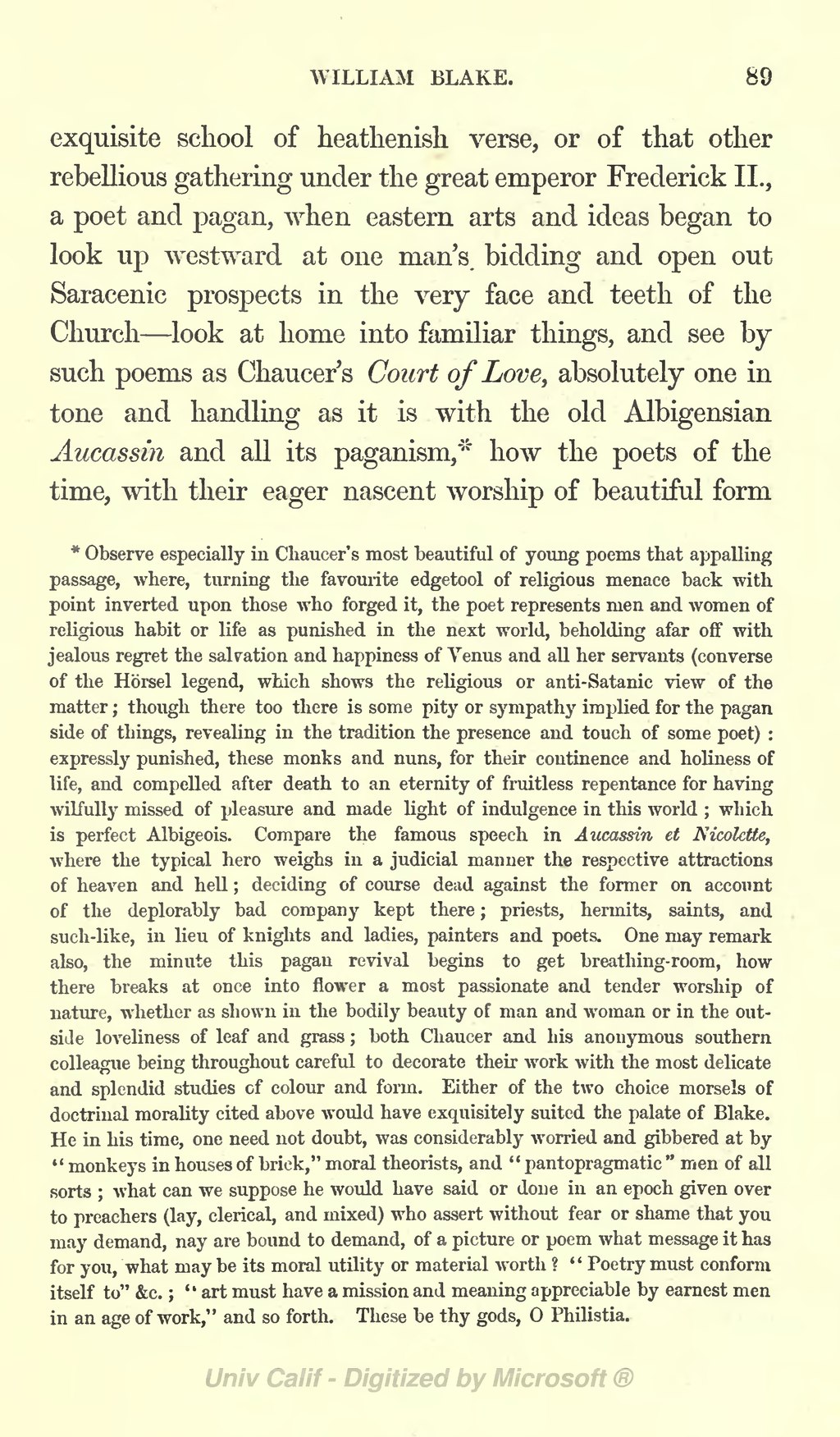This page has been validated.
WILLIAM BLAKE.
89
exquisite school of heathenish verse, or of that other rebellious gathering under the great emperor Frederick II., a poet and pagan, when eastern arts and ideas began to look up westward at one man's bidding and open out Saracenic prospects in the very face and teeth of the Church—look at home into familiar things, and see by such poems as Chaucer's Court of Love, absolutely one in tone and handling as it is with the old Albigensian Aucassin and all its paganism,[1] how the poets of the time, with their eager nascent worship of beautiful form
- ↑ Observe especially in Chaucer's most beautiful of young poems that appalling passage, where, turning the favourite edgetool of religious menace back with point inverted upon those who forged it, the poet represents men and women of religious habit or life as punished in the next world, beholding afar off with jealous regret the saltation and happiness of Venus and all her servants (converse of the Hörsel legend, which shows the religious or anti-Satanic view of the matter; though there too there is some pity or sympathy implied for the pagan side of things, revealing in the tradition the presence and touch of some poet): expressly punished, these monks and nuns, for their continence and holiness of life, and compelled after death to an eternity of fruitless repentance for having wilfully missed of pleasure and made light of indulgence in this world; which is perfect Albigeois. Compare the famous speech in Aucassin et Nicolette, where the typical hero weighs in a judicial manner the respective attractions of heaven and hell; deciding of course dead against the former on account of the deplorably bad company kept there; priests, hermits, saints, and such-like, in lieu of knights and ladies, painters and poets. One may remark also, the minute this pagan revival begins to get breathing-room, how there breaks at once into flower a most passionate and tender worship of nature, whether as shown in the bodily beauty of man and woman or in the outside loveliness of leaf and grass; both Chaucer and his anonymous southern colleague being throughout careful to decorate their work with the most delicate and splendid studies of colour and form. Either of the two choice morsels of doctrinal morality cited above would have exquisitely suited the palate of Blake. He in his time, one need not doubt, was considerably worried and gibbered at by "monkeys in houses of brick," moral theorists, and "pantopragmatic" men of all sorts; what can we suppose he would have said or done in an epoch given over to preachers (lay, clerical, and mixed) who assert without fear or shame that you may demand, nay are bound to demand, of a picture or poem what message it has for you, what may be its moral utility or material worth? "Poetry must conform itself to" &c.; "art must have a mission and meaning appreciable by earnest men in an age of work," and so forth. These be thy gods, O Philistia.
